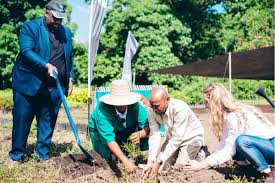For decades, many households in Tanzania relied on firewood and charcoal for cooking. This traditional method was not only time-consuming and unhealthy but also contributed to deforestation and air pollution. Now, Tanzania is making a major shift—moving from firewood to electric cooking.
The change is part of the government’s broader effort to modernize the country’s energy sector and reduce environmental damage.
With support from development partners and private companies, thousands of households are now adopting electric cooking appliances like induction cookers, electric stoves, and pressure cookers.
The shift is driven by several factors:
Health concerns: Smoke from firewood causes respiratory diseases, especially among women and children who spend more time in the kitchen. Electric cooking eliminates this risk.
Environmental protection: Deforestation has become a serious problem in Tanzania. Reducing the use of firewood helps preserve forests and combat climate change.
Government support: Authorities have launched public awareness campaigns and introduced subsidies to make electric cooking more affordable, especially in urban and peri-urban areas.
Improved electricity access: Over the past few years, more Tanzanians have gained access to electricity through national grid expansion and off-grid solar solutions.
Despite the progress, challenges remain. In rural areas, where electricity is still limited or unreliable, many families continue to rely on traditional cooking fuels. Some households also struggle with the initial cost of buying electric appliances.
Experts say that for the transition to be successful nationwide, more investment is needed in rural electrification and in educating people on the benefits of modern cooking methods.
Tanzania’s journey from firewood to electric cooking marks a major step toward a healthier, cleaner, and more sustainable future. If the momentum continues, the country could soon become a model for other African nations looking to modernize household energy use.



